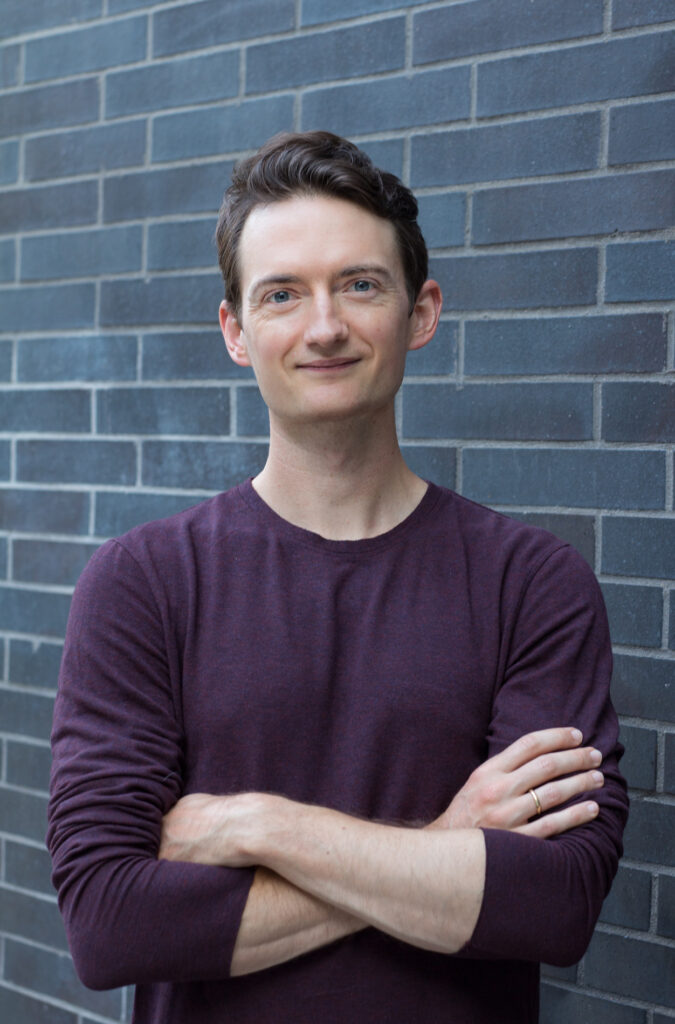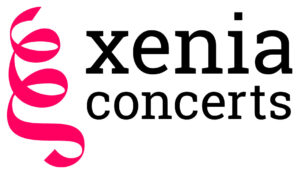As part of the podcast series, “ArtsAbly in Conversation,” Diane Kolin interviewed Rory McLeod, Executive and Artistic Director of Xenia Concerts.

This post presents the resources that he mentioned during the conversation.

Xenia Concert’s website
Xenia Concerts was launched in 2014 as a pilot program that aimed to address a barrier in the arts: people living with autism are often not welcome at concerts because they tend to express themselves in ways that are often frowned upon at traditionally organized events. Xenia Concerts designs and presents accessible concerts for young music-lovers who face barriers to inclusion.
Xenia Concert’s Accessibility Accelerator
This group of Accelerator Co-Designers uses inclusive co-design methods to establish design objectives, ideate possible outputs, develop prototypes, and create resources to share with fellow artists and arts workers. They centre the voices of neurodivergent and disabled individuals throughout the design process, while keeping in mind that the final outputs will be directed to both disabled and not-yet-disabled people working in the arts. Their ultimate objective is to develop implementable, sustainable design adaptations that support accessibility, and to share those with the broader arts community to support the inclusion of disabled and neurodivergent individuals across Canada, both onstage and off.
Xenia ASD Youth Advisory Council Final Report
In 2023, Xenia Concerts and ASO (formerly Asperger’s Society of Ontario) teamed up to create the Autism Spectrum Disorder (ASD) Youth Advisory Council. The goal of this project was to create a platform for autistic youth aged 14-20 to unite and collaborate, offering their unique perspectives to challenge existing structures, pioneer innovative solutions and influence the design of two autism-friendly concerts. Now that the council meetings have concluded, the Xenia ASD Youth Advisory Council Final Report has been published.
Gaitrie Persaud-Killings
Gaitrie Persaud-Killings is a theatre maker who develops performances using an eclectic mix of visual and physical theatre styles. She is also an ASL Music performer, ASL coach and Deaf interpreter of theatre. She is the founder and Artistic Director of Phoenix The Fire which is a theatre community hub for IBPOC Deaf artists.
Adrian Anantawan
Adrian Anantawan holds degrees from the Curtis Institute of Music, Yale University and Harvard Graduate School of Education. As a violinist, he has studied with Itzhak Perlman, Pinchas Zukerman, and Anne-Sophie Mutter; his academic work in education was supervised by Howard Gardner. From 2012-2016, he was the co-Director of Music at the Conservatory Lab Charter School, serving students from the Boston area, kindergarten through grade eight. He is the current Chair of Music at Milton Academy, the Artistic Director of Shelter Music Boston and is an Associate Professor of Music at Berklee College. Throughout the year, Adrian continues to perform, speak and teach around the world as an advocate for disability and the arts.
Ben Lunn
Whether it’s writing protest songs or using musical instruments as part of the rehabilitation process, music and disability have historically had a complicated relationship. Lunn is Drake Music’s latest associate musician and has been composing from the age of 18. He studied at the Royal Welsh College of Music and Drama and his work has been featured in many leading international festivals. (Excerpt of an interview with Disability Arts Online).
David Bobier and VibraFusionLab
David Bobier is a self-identified hard of hearing media artist with a mental health diagnosis and is the parent of 2 deaf children, now adults. His work has been exhibited internationally and has been the focus of prominent touring exhibitions in Ontario and the Atlantic provinces. Bobier has received grants from Canada Council for the Arts, Social Sciences and Humanities Research Council, Grand NCE, Ontario Arts Council and New Brunswick Arts Council.
Learn more about David Bobier’s work on VibraFusionLab’s website
Jesse Stewart
Jesse Stewart is an award-winning composer, percussionist, visual artist, researcher, and educator. He has authored nine book chapters and is currently working on two book projects: a co-authored book (with Ajay Heble) on the pedagogy of improvisation, and a co-edited book about Pauline Oliveros and the Adaptive Use Musical Instrument. His music has been documented on over twenty recordings including Stretch Orchestra’s self-titled debut album which was honoured with the 2012 “Instrumental Album of the Year” JUNO award. He has performed and/or recorded with musical luminaries including William Parker, Pauline Oliveros, Hamid Drake, Ernst Reijseger, Dong-Won Kim, Michael Snow, David Mott, and many others. He endorses Headhunters brand drumsticks and Auracle handpans.
Learn more about Jesse Stewart’s work on Carleton University’s website
RAMPD
RAMPD (Recording Artists and Music Professionals with Disabilities) is a professional platform equipping the music and live entertainment industry with disability inclusive tools, programming and strategy. RAMPD also connects the industry to a global directory of peer-vetted music/sound creators and industry professionals with disabilities, neurodivergence and other chronic or mental health conditions, to find source and hire—bringing competitive opportunities, visibility and community to our Professional Members while offering disability inclusion to Industry/Venue partners.
Drake Music
Drake Music is the British leading national organization working in music, disability and technology. They are a national arts charity working across the UK from their Head Office in London, a National Portfolio Organization for Arts Council England, and also work with Youth Music. They have been pioneering the use of accessible music technology for over 20 years, enabling more people to play, learn, write and teach music, specializing in the use of technology to break down disabling barriers to music making.
Lotus Centre Institute for Professional Development
The mission of Lotus Centre for Special Music Education is to provide access to adapted music education for the special needs community. They see professional development as a huge part of that mission, as the more teachers are equipped to teach students with exceptionalities, the more opportunities there will be for the special needs community. Their goal is to provide both classroom and studio music educators with the skills they need to help students of all abilities reach their full potential.

